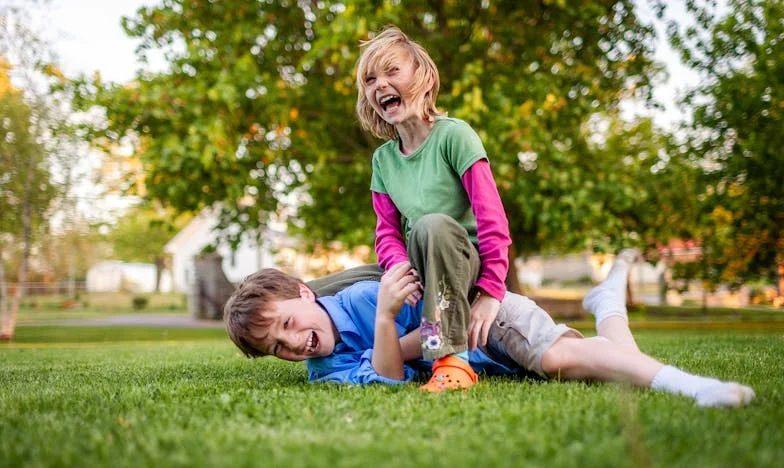Every Room Smelled Like Home—Except Mine: A Story of Family, Addiction, and Forgiveness
“Don’t let him in, Mom. Just—just don’t.”
David’s voice trembled as we stood on the porch, our breath fogging in the November air. His hand was a fist in his jacket pocket, knuckles white. I squeezed his shoulder, but I could feel his whole body shaking.
But Mom opened the door anyway, and a wave of warmth and smells crashed over us—roast chicken, cinnamon rolls, nutmeg and sage. For a second, I almost forgot my father was inside, almost forgot why David and I had stood outside arguing about whether to come at all.
I crossed the threshold, just as I had a thousand times growing up in this split-level in Cincinnati. The kitchen glowed yellow. Mom, hair up in a messy bun, was fussing over the oven, her apron dusted with flour. Dad sat at the dining table, a half-finished puzzle in front of him, his cheeks blotchy, eyes too bright. The silence between my parents was like a storm cell, heavy and waiting to break.
“Hey, Sarah. David,” Mom said, her voice forced-bright. “You made it. Dinner’s almost ready.”
“Yeah,” I said, setting the pie I’d brought on the counter. “Smells like you’ve been cooking all day.”
“It’s Thanksgiving,” she said, wiping her hands on a towel. “I wanted it to be special.”
Dad looked up. “Glad you came, kiddo,” he said, voice thick. He hadn’t shaved; his hands trembled when he reached for his coffee mug. I felt David flinch next to me.
We hadn’t all been in the same room in almost two years. Not since the night Dad smashed a bottle against the wall, screaming at Mom about money, and David called the cops from the basement. Not since I moved out, taking David with me for a week until Mom said it was safe to come back.
Now here we were, pretending to be a family again.
“Let me help with the plates,” I said, anything to keep my hands busy. David disappeared to the den; I heard the TV flick on, the volume up too loud.
Mom leaned in as I stacked plates. “He’s trying, Sarah. He’s been going to meetings. Five months sober.”
I stared at the roast chicken, the golden skin, the sprigs of rosemary. “That’s good,” I said, but my voice was flat. I wanted to believe her. I wanted to believe this meal meant things could go back to the way they were, before the yelling, before the stench of whiskey in every room.
She touched my cheek. “He misses you.”
“He misses the idea of us,” I said. “Not the mess he made.”
She looked hurt, but didn’t argue. I was always the one who fought back. David hid in video games and music. I filled my lungs with other people’s air—friends’ houses, late-night bus rides—anything not to be home.
We sat down. David slouched, hoodie up. Dad cleared his throat. “Sarah, you still at the hospital?”
“Yeah,” I said. “ER’s been crazy.”
He nodded, but didn’t meet my eyes. “That’s good. Helping people. Real work.”
Mom served. The chicken was perfect, but my stomach twisted. Conversation sputtered. Dad asked David about college, about his band. David shrugged, mumbled, barely looked up.
Halfway through dessert, Dad set down his fork. “I know I messed up. I know I hurt all of you. But I’m trying. I really am.”
The table went silent. I felt every muscle in my body tense, waiting for the old explosion.
“Trying doesn’t undo what you did,” I said quietly.
He looked so small, hands clutching his coffee mug. “I know. But I want to make it right. I—” His voice broke. “I want my family back.”
David stared at his plate. “I don’t want to talk about this.”
Mom reached for his hand, but he pulled away.
“David,” Dad said. “Please.”
David’s voice was a whisper. “You promised a hundred times.”
Dad’s face crumpled. “I know. I did. And I broke them. But I’m here now. I haven’t had a drink in months. I go to work. I pay the damn bills—”
He was pleading, desperate. Mom was crying quietly, dabbing her eyes with a napkin. I just felt tired. Tired of cleaning up, tired of forgiving, tired of holding the family together by my fingernails.
“What do you want from us?” I asked. “For us to pretend nothing happened? That we’re just like any other family?”
“I want to be your dad,” he said. “I want to earn your trust again.”
I remembered the night I found David in the backyard, crying, the night I packed our bags. The way Mom looked at me, helpless. The sound of glass shattering.
“It’s not that simple,” I said. “We’re not the same people anymore.”
He nodded. “I know. But maybe we can start small. Share a meal. Talk.”
For a long time, nobody spoke. Outside, snow began to fall, soft against the window. Mom sniffled. David wiped his eyes with his sleeve, embarrassed.
Slowly, I reached for Dad’s hand. His palm was rough, calloused, trembling. I squeezed it. David hesitated, then did the same.
We sat there, three hands tangled, Mom’s head bowed, the smell of cinnamon and roast chicken hanging in the air. Not everything was forgiven. Not everything was okay. But for one moment, we were together—and that was something.
Later, driving home with David, he stared out the window. “Do you think he’ll ever really change?”
“I don’t know,” I said. “But maybe we can change. Maybe that’s enough to start.”
Sometimes I wonder: can broken families ever really heal, or do we just learn to live with the cracks? Would you have reached for his hand, or slammed the door instead?
